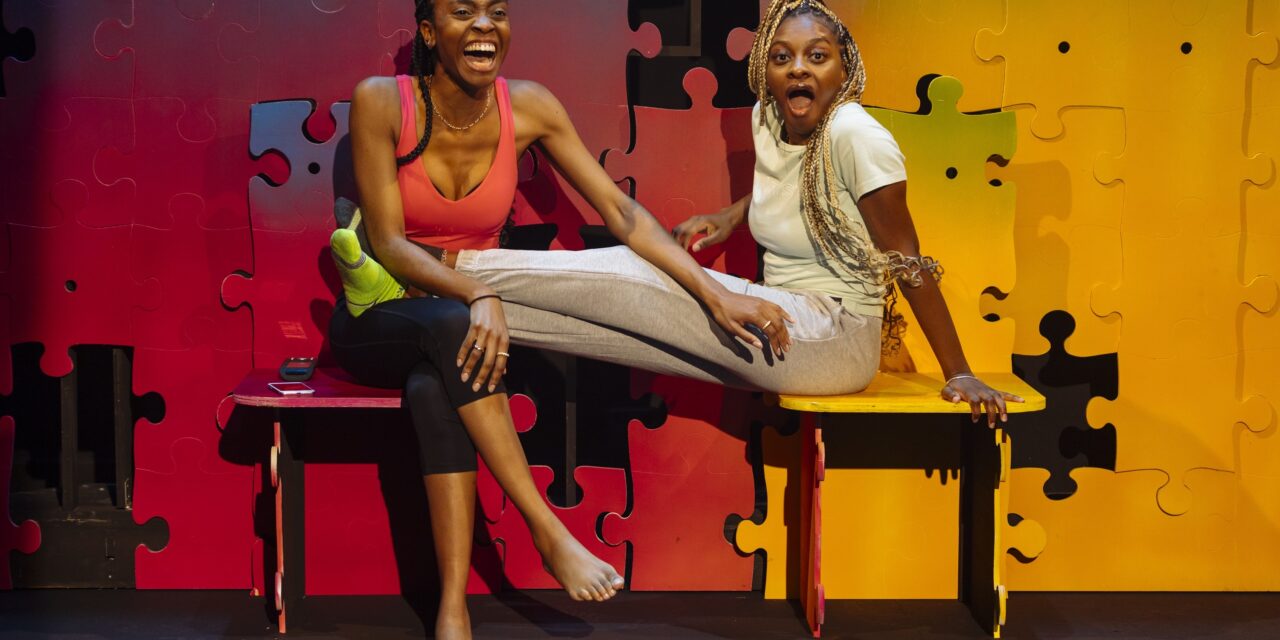
When are you going to get married? When are you going to have kids?? For single people at the sore end of their twenties or (gulp) even older these questions become increasingly frequent and increasingly unwelcome. Jessica Hagan’s new play takes these maddening pressures and squashes them into Ama, 29 and unmarried, desperate to have a baby before she’s 30.
Hagan’s first play, ‘Queens of Sheba’, was something theatre hadn’t seen much of before: four Black women on stage, supporting each other, uplifting, confessing, and just existing in a space that has often marginalised them.
The company that made the show, Nouveau Riche, had a massive recent hit with ‘For Black Boys Who Have Considered Suicide When The Hue Gets Too Heavy’, a moving, surprising, joyful tapestry of Black masculinity that started life at the New Diorama Theatre.
So there’s a weight of expectation for this new collaboration between Hagan and Nouveau Riche. But where those two shows were inventive and unique, ‘Brenda’s Got a Baby’ is surprisingly staid, more an extended sitcom pitch than a play.
That’s carried through in the performances, too: big, broad, goofy. Under director Anastasia Osei-Kuffour the cast all brilliantly bring their characters to life: Jahmila Heath’s settled sister Jade, Edward Kagutuzi as her kind-hearted husband Skippy, and at the centre a wonderfully bouncy, gesturing turn from Anita-Joy Uwajeh as Ama, a magnetic performer.
But the material is chaotic. The characters do and say the most irrational things which makes it hard to understand them, hard to care for them, or see them as anything other than plot pieces.
Occasionally there are tacked-on statistics about unequal health outcomes for Black women – the fact that they’re four times more likely to die in childbirth – but these are delivered with sudden straight faces, out of the blue, like the whole thing has stopped being a play for a moment and suddenly become a medical journal. These are vastly important issues, but the play treats them in a fleeting, unexamined way.
As we jolt from one contrived sitcom setup to another, what we’re missing is any heart – at least until Michelle Asante’s wonderfully mercurial mother delivers a suddenly devastating speech about motherhood, a tantalising glimpse at an emotional core that’s been absent from the rest of the play.
Absolute credit to Hagan for trying something different, not just repeating what worked before, and huge points for an outrageously soapy twist that had the press night audience gasping. In fact, there are many good moments along the way and some great lines. Anyone expecting this to be anything to do with the Tupac song, well it isn’t. Instead it’s broad and silly and a bit all over the place, and amid all the chaos strangely endearing too.





